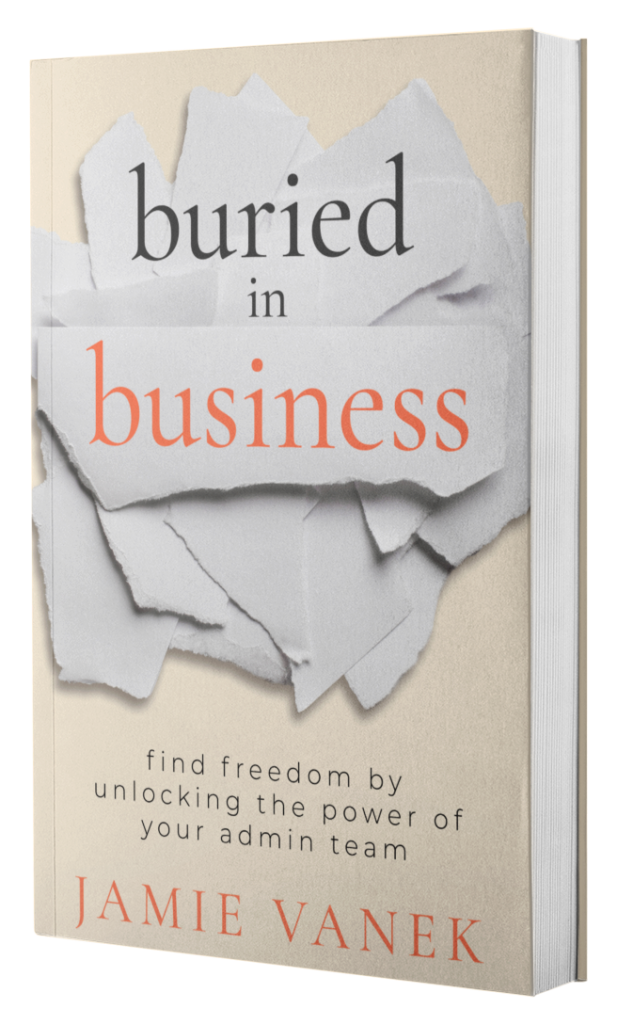I still remember driving down Jefferson Avenue after work, tears brimming in my eyes and pressure building in the back of my throat. My head was pounding—again. No single traumatic event had happened that day. Nothing major. And yet, I felt like I was unraveling.
Was it stress? Motherhood? My husband was deployed in a war zone at the time—maybe that was it. Or maybe I needed to see a doctor for these constant headaches.
So I did what I always do—I took inventory.
My daughter was safe, well cared for by someone I trusted. I had a network of neighbors and friends. A weekly book club where I could laugh, sip something delicious, and decompress.
But when I got to the “work” column, the answers became clear. That was where the weight lived.
I Was Doing Everything “Right”—And Still Getting Nowhere
I cried most days after work. I took Advil like vitamins, just to get through the day. I showed up, went above and beyond, logged my wins, took on extra work, tried to prove I was ready for more.
And still, I was stuck.
I wanted to move from administrative support into project management—something I had done before and was fully capable of. I had the drive, the results, the receipts. But the opportunity never came. My managers didn’t need what I was trying to offer. No matter how hard I pushed, it was like throwing energy into a void.
Eventually, I left.
Desperation Looks Like Drive—But It Feels Very Different
Looking back, I see it so clearly now. I was pushing from a place of desperation. I had taken the role after a layoff—not because it was aligned, but because it paid the bills. It was a step back, and my ego took a hit. I felt like I had something to prove.
So I hustled harder. I clung to the idea of getting back on track, of regaining my “momentum.” But here’s the hard truth: desperation is not a growth strategy. It’s draining. It’s tight. It repels the very opportunities we’re trying to chase.
We know this instinctively when we see it in others. That person is so desperate—we say it like a warning. Because when we operate from desperation, we’re not attracting anything. We’re grasping. And that’s not how aligned opportunity works.
You Don’t Just Earn It—You Have to Attract It
Fast forward a bit, and after a break from the construction industry, I came back. But this time, I brought something different with me.
Not a new certification. Not a tighter résumé.
A new energy.
Instead of showing up with a list of demands or expectations, I came in curious and open. I started in a lower-level role, yes—but this time I wasn’t there to claw my way out of it. I was there to align.
I learned the business. I listened for gaps. I did my work with excellence. And I allowed the next step to emerge rather than trying to force it.
Did I still work hard? Absolutely. But I wasn’t pushing with clenched fists anymore. I was open-handed—ready to grow with the company, not ahead of it.
Alignment > Desperation
I share this story because so many professionals—especially high-achieving women—are told to “lean in,” push harder, show more initiative. And there’s value in that, yes. But when it comes from a place of fear or scarcity, it can actually keep us stuck.
Desperation says “I have to prove myself.” Alignment says “I trust what I bring to the table.”
Desperation chases. Alignment attracts.
And the best opportunities? They’re not just earned. They’re invited.
So if you’re stuck, or pushing, or wondering why your hard work isn’t opening doors—maybe it’s time to stop striving and start aligning.
Your next chapter might not need more effort. It might need a different energy.








